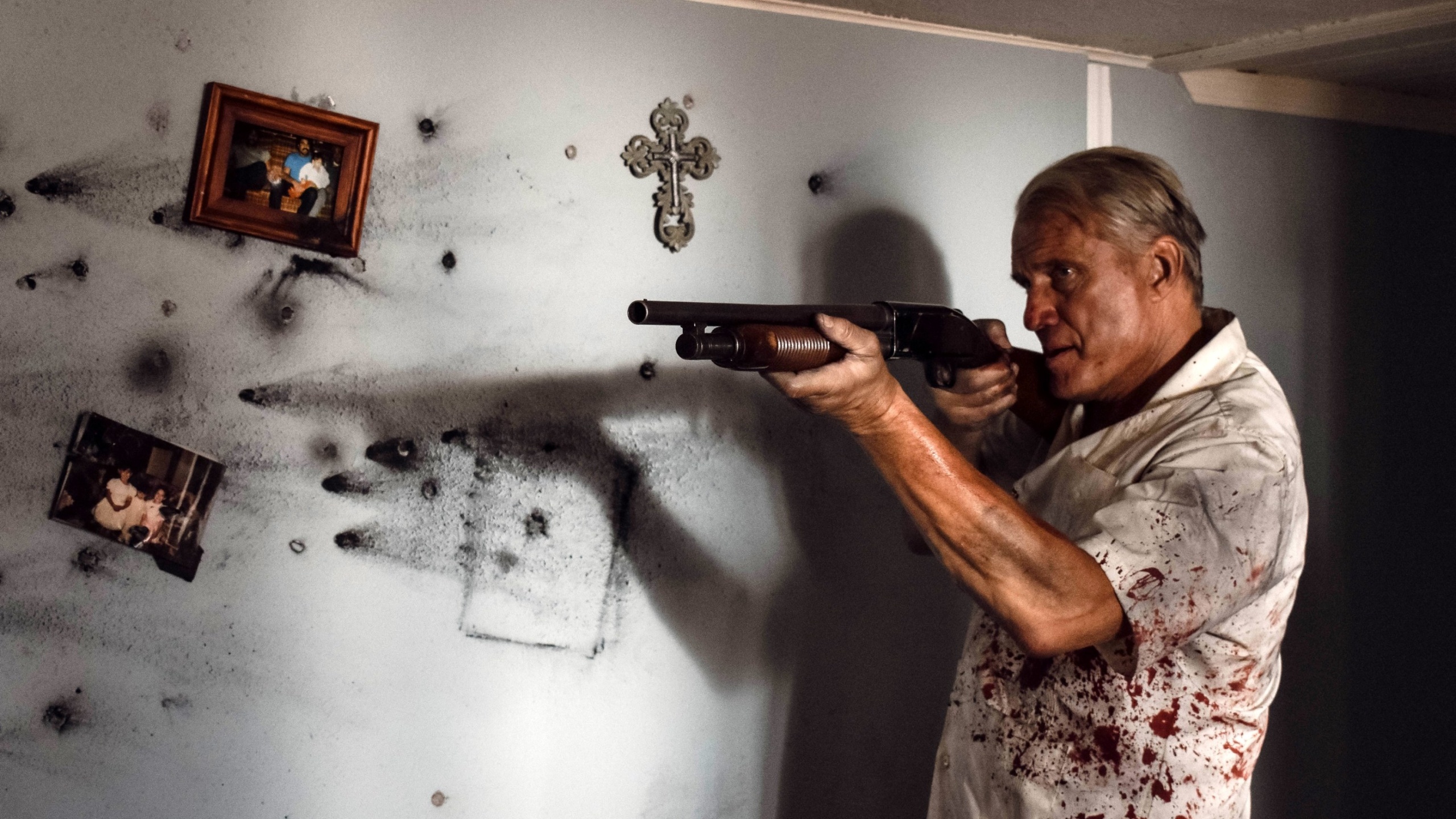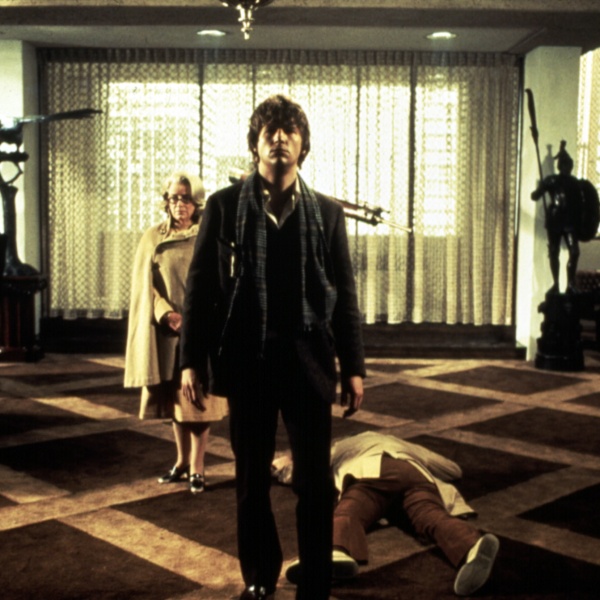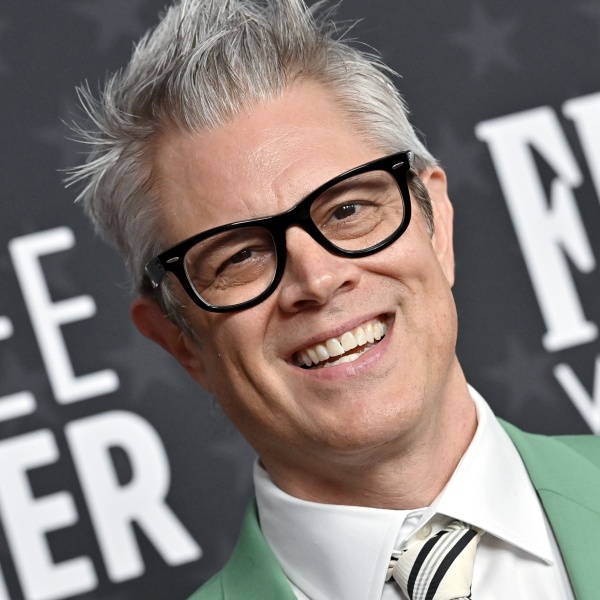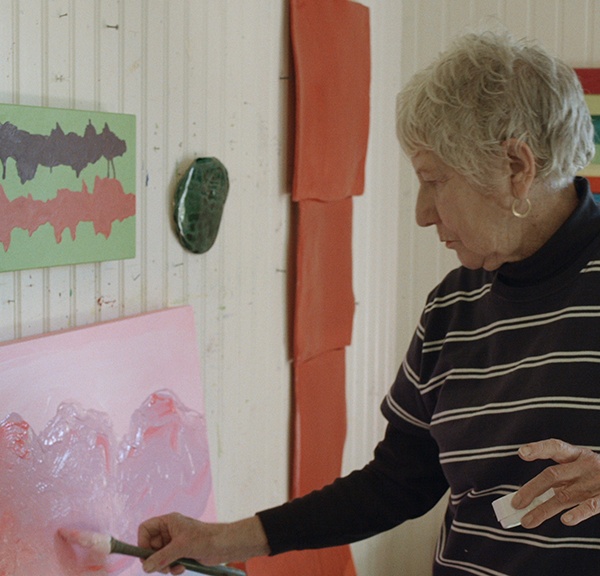Nearly 40 years after he made his big screen debut with a brief appearance in the James Bond picture “A View to a Kill,” Dolph Lundgren is still best known as an actor thanks to a series of iconic roles in ’80s and ’90s favorites like “Rocky IV,” “Masters of the Universe,” and “Universal Soldier.” (More recently he’s been a fixture in the “Expendables” and “Aquaman” franchises.) Yet for the past couple of decades, Lundgren has been quietly forging a side career as an accomplished writer and director of low-budget action films, movies that belie their limited resources in ambition and craftsmanship. Like the scrappy genre directors of Hollywood’s past — filmmakers like Budd Boetticher, Sam Fuller, and Don Siegel — Lundgren uses the creative freedom of lower budgets to smuggle his personal obsessions and stylistic preoccupations into accessible entertainments that are as intelligent as they are lively.
Lundgren’s latest release, “Wanted Man,” is one of his best, a contemporary riff on Clint Eastwood’s “The Gauntlet” that follows Johansen (Lundgren), a racist cop on assignment transporting a witness across the border from Mexico. As Johansen and the witness are targeted by the local cartels and corrupt law enforcement operatives, Johansen’s perspective on both his job and the situation at the border shifts, but the changes in the character aren’t the broad reversals of melodrama. Lundgren plays the adjustments subtly and doesn’t force them — nor does he force any false likability into the character. Johansen is a haunted antihero along the lines of Eastwood’s Wes Block or Will Munny, a violent thug who nevertheless finds some measure of convincing redemption, and whose contradictions grew from observations Lundgren made thinking about his own father.
“By building a backstory you find a way to relate to the character,” Lundgren told IndieWire’s Filmmaker Toolkit podcast. “In this case, he reminded me of my dad, who had a lot of preconceived notions and was kind of a bitter guy. He just had a way of looking at people and judging people, so I drew on him quite a bit.” Lundgren added that calibrating the arc of a character like Johansen is what really interests him about making movies, that he sees his primary job as a director as not only giving the best possible performance himself but creating the circumstances under which all of the other actors feel most free to contribute.

“Job one is to make all of the actors feel comfortable, so you can’t be stressed out when you speak to them and you have to make sure they’re well taken care of,” Lundgren said. “Even things like, when they fly into location, make sure somebody is there to meet them. Make sure everything is set up for them so they’re in a good mood and willing to sacrifice themselves, because there’s a lot of effort on their part that you’re going to need as a director.” Lundgren noted that the speed on a production like “Wanted Man,” which was shot in under 25 days, is like “night and day” compared to the “Aquaman” movies, where he spent hours on stages matching visual effects. “Say it’s a scene with me and Nicole Kidman. It has to match what they’ve done already for the effects to work. Even if your performance is good, they have to shoot and reshoot. Sometimes you do 20 or 30 takes, so as an actor, you start losing your self-confidence going, ‘Am I really that bad?’”
Lundgren prefers to keep the energy up on set with fewer takes and extensive planning in pre-production, which not only saves time and money but yields riveting set pieces like the Peckinpah-esque shootout that anchors the middle of “Wanted Man.” Lundgren feels the key to making action involving is conceiving it so that the actors can do as much of it themselves as possible. “I don’t like movies where suddenly you have all these quick cuts and somebody’s getting punched in the face and you know it’s not the actor, it’s their double,” he said. “I like to keep the camera loose enough where you can see who’s firing the weapon or who’s doing the fighting. It feels a bit more real, and you can actually get it done quicker that way too.”
Getting it done quickly is of paramount importance in Lundgren’s world, where budgets have continued to tighten in a changing marketplace. “It’s getting more and more difficult, but it’s always been difficult,” he said. “For a while DVD was a big moneymaker to hedge your bets. If it didn’t do well in theatrical, you had DVD and home video and then pay TV. Now it’s more about streaming. If you get a good script and find the right actors and try not to overspend, there’s usually a way to get stuff financed, but it’s always been difficult to make movies, and I think it’s always going to be.” Nevertheless, Lundgren says he enjoys making movies now more than ever. “I’m not as desperate. I don’t beat myself up if something isn’t perfect. It’s a way for me to stay current and stay young and there’s always something new that I can attempt.”




